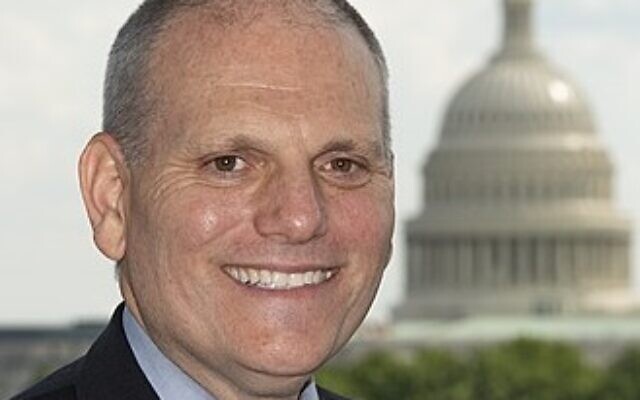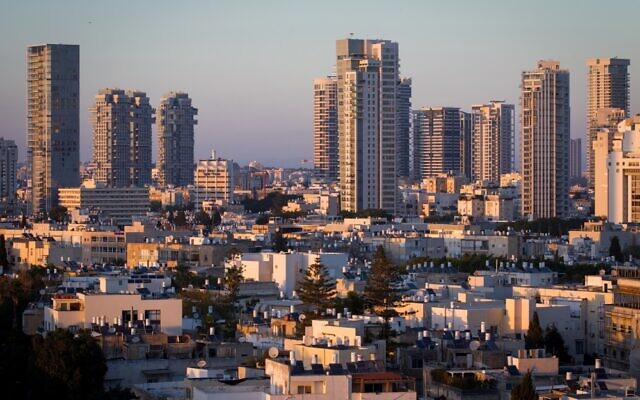Change in Israel’s Law of Return is Proposed Again
The bill would disallow grandchildren of Jews to immigrate.
While the Jewish world has been focusing on the recent deadly terrorist attacks in Israel and the ongoing protests against the government’s proposed weakening of the justice system, few seemed to have noticed another red flag raised by an Israeli legislator that could have a significant impact on many wanting to immigrate to Israel.
Far-right legislator Avi Maoz, head of the one-seat extreme Noam party, in late March submitted a bill in the Knesset, Israel’s legislature, that will limit eligibility for Israeli citizenship. Currently, Israel allows Jews, their spouses and their first- and second-generation descendants to seek citizenship through the Law of Return which was passed in 1950 and then amended in 1970. Maoz hopes to essentially revoke the 1970 amendment which allowed non-Jewish grandchildren of Jews to apply for citizenship.
The suggested change in the Law of Return was initially proposed right after the Nov. 1 election and during the negotiations to create a coalition government. Shortly thereafter, American Jewish leaders condemned the move. As reported by Times of Israel at the time, William Daroff, head of the Conference of Presidents of Major American Jewish Organizations, argued, “The Law of Return is a bedrock of Zionism,” he said.

Similarly, the Union for Reform Judaism issued a statement last November, saying, “The proposed removal of the grandchild clause from the Law of Return…is offensive and a serious violation of the sacred bond the state of Israel has established with Jews around the world. The state of Israel must continue to be a safe refuge that will welcome all members of the extended Jewish family who are persecuted or just want to live their lives in Israel, contributing to the vibrancy and growth of a modern Israel in their ancestral homeland.”
The Reform Movement of Judaism particularly took note at the time because the “grandchild clause,” as it was known, was included partly to encourage interfaith couples to immigrate to Israel.
“We are deeply concerned about threats to…the Diaspora through the modification of the Law of Return to prevent non-halakhic Jews from immigrating to Israel,” the statement noted, referring to Jewish law and listing other concerns about Supreme Court rulings that had recognized non-Orthodox conversions in Israel.
The proposed removal of the grandchild clause from the Law of Return…is offensive and a serious violation of the sacred bond the state of Israel has established with Jews around the world. The state of Israel must continue to be a safe refuge that will welcome all members of the extended Jewish family who are persecuted or just want to live their lives in Israel, contributing to the vibrancy and growth of a modern Israel in their ancestral homeland.
Both the URJ and Daroff contended that the 1970 “grandchild clause” amendment was based on Nuremberg laws’ definition of Jewishness in 1930s Germany. “Our forebearers took the Nuremberg laws and said if one grandparent was enough to kill you, it’s enough to let you in.” However, there’s some dispute whether the Nazi racial laws were behind the “grandchild clause” because the 1970 amendment never mentioned them.
After the swearing in of his latest coalition government late last year, Prime Minister Benjamin Netanyahu specified that there would be no changes to the Law of Return, despite requests from coalition partners. However, the latest political polling in Israel indicates that if elections were held right now, he would not be able to put together another coalition government. That means he will need to satisfy his current partners’ demands in order to avert elections any time soon.

Meanwhile, although American Jews have expressed concern about any changes to the Law of Return, there’s some question whether that community is the target of the legislation. Some commentators have suggested that Israel’s ultra-religious community members have felt threatened by the influx of non-Jewish immigrants from Eastern Europe, who received citizenship based on a Jewish grandparent.
In fact, the URJ specifically noted that Israel has “welcomed thousands of Jewish Ukrainian refugees to Israel – many of whom qualify based on this critical grandchild clause,” and that this has been a source of pride in the Diaspora community.
Whether or not East European Jewish descendants are the target of the proposed law, Rabbi Josh Weinberg, vice president for Israel & Reform Zionism at URJ, told the AJT that American Jews should not underestimate the impact this legislation could have on the Jewish community.
Efforts to reach Atlanta rabbis for comment during the Passover holiday were unsuccessful.
- Israel news
- politics
- Jan Jaben-Eilon
- Avi Maoz
- Knesset
- Law of Return
- Times of Israel
- William Daroff
- Conference of Presidents of Major American Jewish Organizations
- Union for Reform Judaism
- Reform Movement of Judaism
- Diaspora
- Nuremberg
- Prime Minister Benjamin Netanyahu
- Rabbi Josh Weinberg
- Israel & Reform Zionism
- grandchild clause




comments